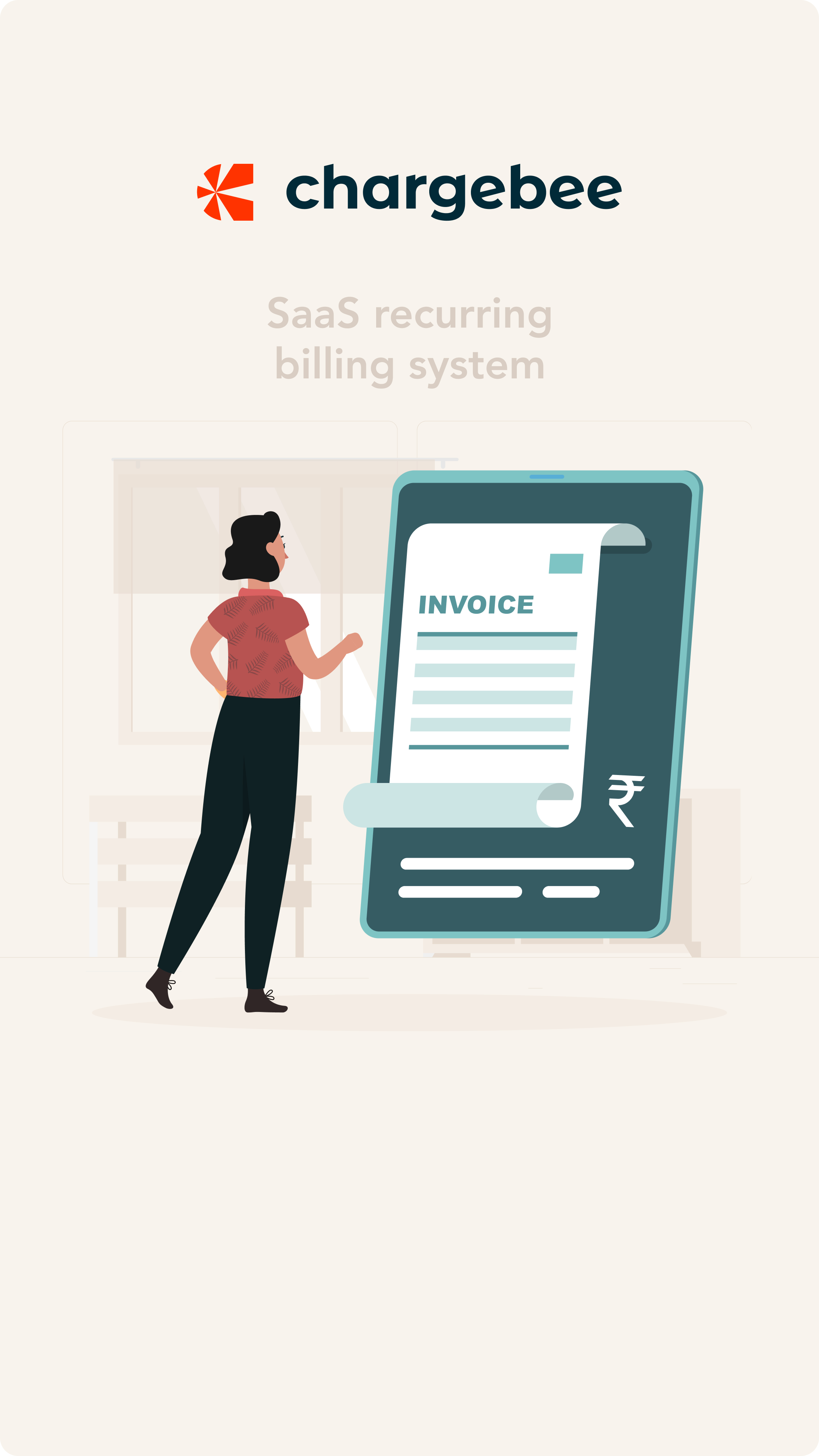People
The Early Story of Chargebee: Why it’s Better to Start with People, not Ideas

Summary
In 2002, a young programmer worked at a small technology startup in Bangalore, earning a modest ₹3,500 a month. He had an undergraduate degree in Engineering, and had been a bright student through school, with an aptitude for learning and an avid interest in reading outside the prescribed syllabus.
The startup, MatexNet, was small and the work was exciting. They created software products using an application service provider model, an early version of multi-tenant, cloud-based products. The startup wasn’t without its share of struggles to make ends meet, and the programmer often worked closely with the founder, spending long days and nights to ship products to customers under tight deadlines.
This could be the story of any graduate in India who is beginning a career. The difference is, 16 years later, the programmer with modest beginnings is now one of the co-founders of Chargebee — a San Francisco and Chennai-based recurring billing startup that recently raised $18M in funding from Insight Ventures, along with Accel Partners and Tiger Global.
We spoke with Krish Subramanian about what happened between point A and point B, from his early career to heading a 135-member startup in the global SaaS billing space. The resulting roadmap revealed a long, systematic journey that started, not with an idea, but with people.

Early Inspiration
When does the entrepreneurial DNA begin to kick in? Is it during the formative school and college years when you learn a basic worldview that informs your decisions into adulthood? Or is it when you find your feet in a career, and understand that you have a personality type that thrives in the uncertainty and challenge of taking fledgling ideas and creating something real from them?
At whatever point it is activated, it is always preceded by a history of influences. Krish’s family ran restaurants and his dad took a brief sabbatical from a government job to do the same when Krish was 13. Missing lectures when he studied at AVC College of Engineering in Mayiladuthurai, a town in Tamil Nadu, he found excuses to help with the restaurant or his uncle’s typewriting and photocopy centre, so he could talk to customers and learn how the business was run.
Later, his interest grew as he hung around HackerNews forums and followed companies like Fog Creek Software that transparently documented their growth. Fog Creek is also the company that created Trello.
“My inspiration was actually watching someone like Joel Spolsky from Joel on Software build a company out in the open, writing not just about what worked, but how he figured things out.”
Diving into topics around entrepreneurship like the primary motives of operating for profit vs. enjoying the journey felt personally relevant for Krish and his college friend, Rajaraman — now his co-founder at Chargebee. They threw around ideas from Hacker news articles and discussed financial planning for the day they would begin their own company.
It would be about 10 years from the time Krish was working at MatexNet that Chargebee first incorporated as Bubblepath, Inc. But the seed of self-realisation that he wanted to be an entrepreneur came from a close working relationship with an entrepreneur at his first job.
The Team Comes Together
By early 2009, Krish had built a career heading teams at TCS and Cognizant. But he was at a crossroad when he was offered a long-term opportunity to take an account and build it in the US — something that would easily need 5–7 years to do. He chose to come back to India and build his own company instead.
Rajaraman and Krish began exploring how they could build and launch a product. They hunted for a unique idea or problem to solve, but several failed attempts at creating a business plan later, nothing stuck. In late 2010, they incorporated Bubblepath, Inc as a commitment to building a business together.
Rajaraman’s roommate at the time was Thiyagu, who was taking a sabbatical from Zoho, a well known Chennai-based SaaS company. Together, the three of them began hacking together early ideas and explorations like a performance management product in the hope of stumbling on a viable product idea. By May 2011, both Krish and Rajaraman had quit their jobs and joined Thiyagu to build the product full time. At this point, Saravanan KP, simply called KPS within Chargebee, who was both Rajaraman’s and Thiyagu’s friend and mentor at Zoho tried convincing them to stay, but was interested enough by the team dynamic and the potential of starting up to leave Zoho instead.

With KPS joining the team, they were confident in having the technical skills and experience to go after a bigger problem. They were also spurred on by the launch of Freshworks (then Freshdesk) in 2010. Today, Freshworks has collectively raised about $149 million in funding from Accel and other VC partners. Shan Krishnasamy, the co-founder of Freshworks, and Rajaraman had joined Zoho’s parent company AdventNet on the same day and had been close since. They lived in the same apartment complex, having bought it together, and the team met Girish Mathrubootham through Shan. Freshworks acted as a catalyst for Chargebee starting up, and became one of Chargebee’s first customers.
“I met Krish in the early days, before Chargebee was even set up,” says Girish. “We bonded over our common passions — our love for good coffee and South Indian food. We would pick the right spots to eat and have good startup conversations.”
Krish believes that the strong foundation of the team was a big factor in how Chargebee’s story has evolved over the years.
“For me, personally, the product we picked didn’t matter. It was the excitement of building a company with the other founders.”
There is a reason why VCs and investors look for strong teams as much as they look for a compelling, viable product. A technically strong founding team, with a good professional relationship and a shared vision for the business is one of the most common denominators of successful startups.
Choosing to Solve Recurring Billing for Everyone
There were several aspects that led to Krish, KPS, Rajaraman and Thiyagu choosing to build Chargebee the product. Krish says that what businesses like Fog Creek Software had done brilliantly was not finding a unique product to build, but bringing a smart set of people together and enabling them to make decisions and figure out solutions.
“They didn’t start with an interesting problem, they took a boring problem and solved it in interesting ways.”
To find a problem to solve, the Chargebee team looked at the industry and the market. They zeroed in on a SaaS recurring billing system by:
- Knowing they could build world-class software with very few overheads because of AWS. Chargebee’s entire server load was 0 in its first year and the first year of hosting only cost them $100 a month. In SaaS, they didn’t have to sink their savings into infrastructure and they could still compete with large companies who already had millions of dollars in funding.
- Finding repeatable components being built in-house in companies over and over again, like SSO and login.
- Identifying underserved segments in an existing category. They could then address a problem that doesn’t have an obvious solution in the market, without having to create an entirely new category from scratch. (They later began influencing the growth of the category by evangelising a little-known and poorly understood problem.)
- Seeing and acting on a nascent move by businesses towards the relationship economy. Subscription businesses were taking off in the US and, to a large degree, in other parts of the world.
But once they chose the problem, they soon realized that it was harder than they had anticipated. The founding team had a clear strength: taking an engineering approach to solving a problem for a set of customers. However, they had a steep learning curve when it came to understanding the competition, positioning the product and knowing how pricing affected product positioning and adoption.
The Right Guidance to Uncover Customer Problems
It took the team 3–4 years to fully grasp the invisible levels of complexity in recurring billing. Developers in companies usually believed they could write the code for a billing system over a weekend, but there were a host of challenges like regulatory frameworks which weren’t immediately apparent to them.
Chargebee took an engineer’s approach to understanding customer problems: they studied the market and spoke to customers over Skype. Since the team was fully technical, Krish had volunteered to handle all other functions like operations and marketing as Rajaraman, KPS and Thiyagu focussed on building the product. He realized that they had underestimated the need to talk to and learn from companies that had scaled and already passed through the phase they were going through.
In October 2012, Chargebee raised its first angel round, but it would be another year before they raised their Series A from Accel. Introduced to Shekhar from Accel during this time via Freshworks, Krish began visiting the Accel office in Bangalore and Shekhar paid it forward with an investment of time. It was refreshing, Krish says, to have someone question their assumptions, grill them about their understanding of the market and nudge them to discover the ‘why’.


In general, when a prospective lead is interested in buying a product, the company’s intent is to convince them to purchase. Shekhar flipped the equation, urging Chargebee to ask deeper questions like:
- Who is interested in buying the product within an organisation?
- How did they discover Chargebee?
- What tools/systems did they use before this?
- Why are they looking at your product?
- Why are existing customers continuing to use your product?
With Shekhar’s year-long mentorship of the young startup and with valuable white board sessions with investors like Subrata Mitra who is on the board of directors at Flipkart, they began seeing that the reasons why they thought a customer had chosen Chargebee vs. the customer’s reasons for actually choosing them were often very different. And this information was key to working towards product-market fit.
“Without understanding why the customer made a choice, you can’t understand what problems they face today that will go away in their ideal system.”
This was an important stage in Chargebee’s early life. Having brought together a strong team that worked well together and zeroed in on a viable problem to solve, uncovering the layers of complexity in building the business, not just the product became the next significant hurdle to cross. Finding timely guidance at this point, helped them grow faster with a stronger foundation learned during their bootstrapped days.
Then and Now
Today, Chargebee has over 7000 customers from 53 countries. Half of them are located in the US, 30% in Europe and the rest in the Asia Pacific region. The business showed an impressive 4x growth over the last year and has started hiring more as they scale. With their latest Series C round of funding, they aim to have a larger impact in the recurring billing and subscription management space.

It is worth contrasting their current pace of growth and maturity in the market with their beginnings. One of the primary goals of the stories we tell as an early-stage venture capital firm is to decode the nascent startup process — to learn from the interesting history of how scalable businesses once chose the problem they would go on to solve for the long term, how they adapted to meet hard challenges — and each succeeded in their own ways.
While these stories differ from startup to startup, from founding team to founding team, they always have a thread of fundamental truths connecting them that all companies who make it to product-market fit will eventually find and learn. We hope to speed up that process.
Story Contributor — Shruti Ghatge
Starting up is a long road. Through the #LearnAtAccel series, we explore inspiration, beginnings and early growth stories from startups who have made an impact and built successful businesses. Accel is an early investor in Chargebee and has participated in their latest Series C round of funding.
Related Articles:
We’re looking for the next generation of successful Indian marketplaces. If you’re an early-stage marketplace founder, apply now here or learn more about the #DecodingMarketplaces Startup Hunt.
We’d love to hear about your experiences with marketplaces. Let us share our learnings and build a better and stronger ecosystem. Write to us at seedtoscale@accel.com to be a part of the Accel family.
Subscribe to SeedToScale
/subscribe to get the latest stories from SeedToScale/










